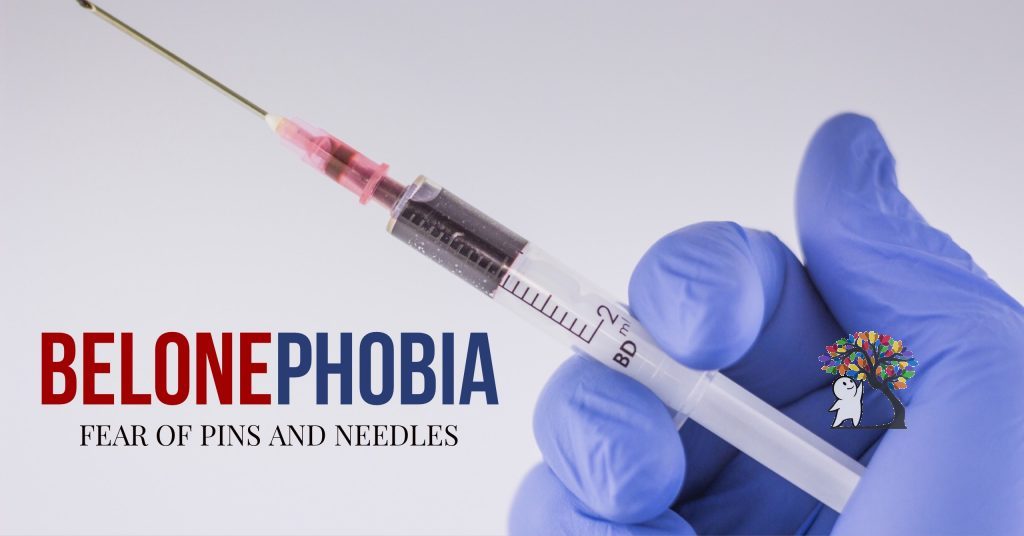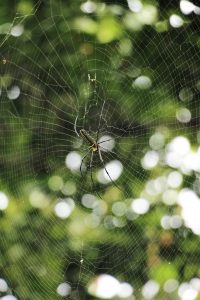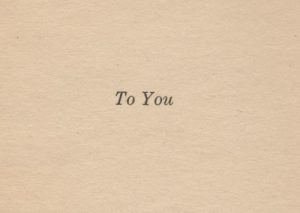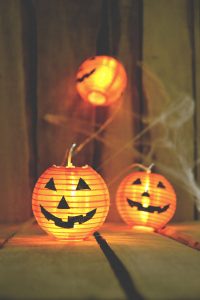7 Phobias: The Psychology of Fear

There is a good change that everyone has heard of a phobia at one time or another. Most people are familiar with the fear of the number 13, though they might not know that it’s true name is triskaidekaphobia, but that might be as far as their knowledge goes. Merriam-Webster defines phobia as “an exaggerated usually inexplicable and illogical fear of a particular object, class of objects, or situation.” A phobia doesn’t have to pertain to something truly fearful like necrophobia, the fear of death or dead things, and can be something that seems innocuous like nomatophobia, the fear of names. Phobias themselves are anxiety disorders that act very interestingly in the brain. Researchers used brain imaging to see of the amygdala lit up when a phobic stimulus was presented to participants. Over the course of their study they found that the amygdala does light up if given enough time to consciously register that they were shown the phobic stimulus. They found that if they were shown it so quickly as to not be able to consciously register that it was there the amygdala would light up for both a phobic stimulus as well as a fear-relevant stimulus, like showing a snake to someone who had a phobia of spiders. What follows are thirteen phobias and the reactions they bring forth.
Disclaimer: There will be pictures that accompany each phobia. If you have a phobia, please take personal care with this article.
1. Triskaidekaphobia, fear of the number 13
Let’s start at the beginning, shall we? Most people have heard of this phobia, it sits strongly in superstitious lore, but understanding it might allude them. While the number thirteen is a lucky one in China and Egypt, it is viewed in a darker light in western cultures. People who suffer from triskaidekaphobia will steer clear of the number altogether, going so far as to avoid business transactions on the 13th day of the month and often times won’t attend work on that day either. There are speculations as to where this superstition and consequent phobia came from. Some people believe that it aligns with the Last Supper and that Judah was the thirteenth person while he went on to betray Christ. Others believe that it might be because the number 13 is an irrational number with 12 being the perfect number with months of the year, zodiac signs, and tribes in Israel.
2. Arachnophobia, fear of spiders
This is another phobia that people might be familiar with since they might have come across someone with it, or even have it themselves. Most people, when faced with a spider inside of their house or near them, will either leave it alone/take it outside or they will kill it. Someone with arachnophobia will have an anxiety attack, possibly run away from the spider in a panic, and be unable to deal with its relocation or disposal. Some people believe that this phobia can be explained by the Middle Ages belief that spiders carried diseases. It was believed for a time that they were the cause of The Black Death father than fleas. Other nations and cultures, like the Native Americans, believed that spiders were a sign of good luck and even a symbol of wisdom. Arachnophobia may be caused by a traumatizing event but in many cases the paralyzing fear is just there and very potent for the sufferer.
3. Belonephobia, fear of pins and needles
There are many people out there that are afraid of needles, such as those used at a doctors office for injections, but belonephobia goes beyond simple syringes. Being worried about a blood draw or an influenza vaccination is one thing but refusing injections of pain meds after surgery, which some doctor’s have encountered, is another thing entirely. While some patients refuse medications others have been found to faint from just the thought of getting an injection, both prove large hurdles for hospitals and their personnel. For the most part, this phobia seems to start in childhood but they need to be evaluated as an actual phobia or as a part of sensory processing disorder.
4. Lygophobia, fear of darkness
Many people have experienced a fear of the dark, usually in childhood, but outgrow it as they get older. Logic usually dictates that the things we feared in the dark as children, such as monsters or the Boogie Man, aren’t real and thusly pose no actual threat to us or our wellbeing. With someone who suffers from lygophobia, or as it’s also known nyctophobia, they may have the logic down, but still fear the dark because of the unknown. The unknown means that any number of things could be lurking in the dark, though in most cases there isn’t anything to worry about. Another reason for the fear of darkness may stem from the fact that the sufferer is unable to see and feels crushed by the darkness that surrounds them. Regardless of the reason behind the phobia the symptoms mirror those of other phobias. Anxiety and panic attacks as well as sweating are common place for a sufferer of lygophobia.
5. Megalophobia, fear of large things
Large is a relative term with this phobia and can span a vast number of things. For the most part though, those who have megalophobia are afraid of things that are significantly larger than themselves. Some sufferers might be afraid of airplanes, though this isn’t the phobia of flying, while others might fear tall skyscrapers or huge clouds. Symptoms of this phobia include things like avoiding areas that have large objects, feeling uncomfortable around large objects, or becoming so anxious when in the presence of large objects that the sufferer experiences a panic attack. This is another phobia that, like almost all phobias, doesn’t have to have a specific cause for the person to suffer from it.
6. Verbophobia, fear of words
Verbophobia is a lesser known phobia but an important one nonetheless. The cause of this phobia can be linked to a few different things, one of which being a difficulty in learning new words in childhood. It is also thought that some instances of illiteracy may be caused by verbophobia which then leads to the embarrassment of being unable to read or write. This can cause a vicious cycle effect that only reinforces the phobia itself. Verbophobia causes anxiety symptoms within the sufferer which culminates in avoidance behaviors such as refusing to read or learn new words.
7. Samhainophobia, fear of Halloween
This phobia seemed more than appropriate for this list given that the start of October is upon us. Samhainophobia is the fear of Halloween and all aspects of the holiday. It is thought that the root of this phobia lies in a traumatic event connected to Halloween, as are many phobias connected to traumatic events surrounding the thing that is feared. Someone suffering from samhainophobia might avoid holiday sections of stores when Halloween is near. They might also avoid giving out candy to trick or treaters and avoid heavily decorated houses around the holiday as well. As with any phobia, the fight or flight response is activated in the brain and leaves the sufferer sweating, with an elevated heart rate, and a feeling of anxiousness they can’t shake until the feared stimulus is removed.
Each phobia, while different in manifestation and cause, is indeed a mental and emotional health issue. Phobias can be treated with therapies such as cognitive behavioral therapy and, in some cases, anxiety medications and antidepressants. It is important to seek treatment for a phobia as it can become very restrictive and have extremely negative effects on your health and social wellbeing. If you would like to research other phobias, The Phobia List is a great place to start.
Other reading from Psych2Go:
12 frightening facts about fear and phobias you might not know
Phobias Can Sometimes Be Formed by Classical Conditioning
Can you correctly identify the phobia names and definitions?










Informative articles
Pl update on how to correct them too